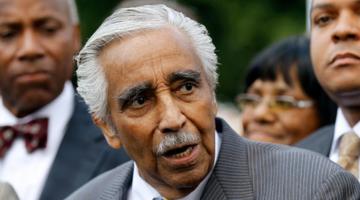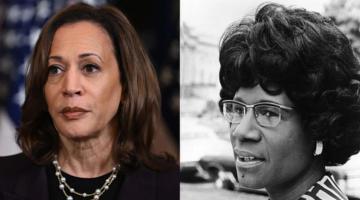In this series, we ask acclaimed authors to answer five questions about their book. This week’s featured author is Daniel McNeil. McNeil is a professor in the Department of History at Queen’s University in Kingston, Ontario, and the Queen’s National Scholar Chair in Black Studies. His book is Thinking While Black: Translating the Politics and Popular Culture of a Rebel Generation.
Roberto Sirvent: How can your book help BAR readers understand the current political and social climate?
Daniel McNeil: Thinking While Black is a book about the work and ideas of the prominent British intellectual Paul Gilroy, the notorious American journalist Armond White, and a political and cultural generation that came of age in the late 1960s and early 1970s. It follows their journeys of intellectual discovery as they challenged conservative codes for managing minority belonging in the 1980s, expressed frustration with corporate and vacuous forms of multiculturalism in the 1990s, and examined struggles for political legitimacy in record stores and movie theatres – as well as polling booths and opinion polls – in the twenty-first century. In doing so, Thinking While Black draws attention to a transitional and transnational cohort that is often overlooked in favor of more conventional narratives about the political struggles and legislative achievements of a civil rights generation, and the individual advancement and digital cultures of a post-civil rights generation.
I argue that Gilroy, White, and their political and cultural generation grant us precious resources to do some deeper and fresher thinking about our current political and social climate. To give one example, the book writes against the contemporary tendency to celebrate or condemn individuals. It doesn’t, for example, spend an inordinate amount of time recycling the professional accolades that Gilroy and White have received on their journeys to their current positions in European universities and conservative media institutions. Nor does it spend much time repeating the vitriolic attacks against them, which have led Gilroy to feel that he has been pushed out of African American political and social thought and White to be expelled from the New York Film Critics Circle. Rather than merely judge what soul rebels can do for readers in the current political and social climate, the book asks what we can do to read them with care, provide some formative context for their work, and rescue them from the condescension of posterity.
What do you hope activists and community organizers will take away from reading your book?
I hope that the book provides activists and organizers with useful resources to address the significance of independent and alternative media in which multiracial groups of people get together, often outside of conventional politics, to change things. It endeavors to share some pointed reminders about the solidarity between academics, critics, and artists in collectively authored projects and collaborative work developed with and for a Black public sphere (in contrast to the exaggerated individualism with which figures are often marketed as Black public intellectuals). It also strives to suggest some ways in which we might learn from initiatives and networks that demonstrate the interrelationship and interdependence of cultural production and radical politics.
For example, Thinking While Black demonstrates the impact of the Rock Against Racism movement in the 1970s, which was educational without being sermonizing. This movement challenged the far-right National Front organization in the UK, which was producing five or six million items of printed propaganda per year, and the hypocrisy of musicians such as Eric Clapton who achieved commercial success covering the music of Black artists such as Bob Marley while parroting the xenophobic and racist chants of the National Front to “Keep Britain White.”
Autodidacts working in photography, theater, music, graphic design, and fashion launched a revolutionary fanzine called Temporary Hoarding in 1976 to support the Rock Against Racism movement. The fanzine’s editorial collective was determined to tap the immense creativity and imaginative ability of working-class people and an “off-the-wall bunch of left-wing artists,” and prevent Temporary Hoarding from descending into the expression of duller voices and rather lifeless question-and-answer sessions in more established left-wing organizations. Their first editorial called for “Rebel music, street music. Music that breaks down people’s fear of one another. Crisis music. Now music. Music that knows who the real enemy is. Rock Against Racism. Love Music Hate Racism.” The fanzine would develop an expansive musical, literary, and visual style, which drew from French surrealism, a “dubbed version of Marxism” shaped by encounters with C.L.R. James and W.E.B. Du Bois, and punk’s do-it-yourself ethos, and published one of Paul Gilroy’s earliest articles (under the nom de guerre G-Roy)
Armond White similarly cut his teeth as a film, music, and culture critic at the South End in Detroit. While nominally the student newspaper of Wayne State University, the South End had changed its name from the Daily Collegian to express solidarity with predominantly Black neighborhoods that lay to the south of the university campus (and convey its critical opposition to the values of the headquarters of General Motors—one of “the wealthiest corporations in the world, an international symbol of the Power of America, and the validity of American economic values”—which lay to the north of Wayne State). White started writing for the paper in 1972 when editorials in the South End promised to offer readers a “viable and refreshing alternative to the drivel of the establishment bourgeois press which is the lap-dog of the ruling class.” When he signed off from Detroit’s third-largest daily newspaper in 1977, he was praised by his colleague Sweet T Williams for his refusal to submit to the demands of “consumer or entertainment conglomerates” or the blandishments of white liberals.
We know readers will learn a lot from your book, but what do you hope readers will un-learn? In other words, is there a particular ideology you’re hoping to dismantle?
The book follows writers influenced by a Black radical tradition that they define as a “tradition in ceaseless motion,” “invariably promiscuous” and “unsystematically profane.” As a result, I hope that it adds a bit of content and cutting edge to struggles to divest from white supremacist, nationalist, and settler-colonial ideologies that bully and encourage people to treat tradition as something that merely involves closed or simple repetition.
One of the chapters in the book is called “Enlarging the American Cinema: Armond White vs. the Straight Middle-Class White World (and the Black Bourgeoisie).” In it, I organize thousands of reviews that White produced in the 1980s and 90s for the City Sun, the Brooklyn-based Black newspaper with the tagline “speaking truth to power” that held politicians, filmmakers, and entertainers accountable to the communities that they purported to serve. It carried original stories and a diverse array of Black writers such as Thomas Sowell, a prominent conservative commentator, and Benjamin Hooks, the executive director of the National Association for the Advancement of Colored People. It was also one of the few New York papers to carry continuing, in-depth African news in the 1980s, and carried advertisements for events such as the Biko Lives Festival from the Free South Africa/Free the South Bronx Network, which celebrated the life and legacy of the anti-apartheid activist Steve Biko.
In a similar fashion to White’s interventions into an American public sphere that was afflicted by racism, colorism, homophobia, and condescending approaches to Black life and culture, Gilroy contributed to defiantly counter-cultural spaces during the 1980s and 90s. These included City Limits, an arts and events listing magazine that broke away from Time Out magazine when its owner abandoned the publication’s original cooperative principles and imposed changes to its collective working practices, and Emergency, a short-lived journal of the radical imagination that aspired to challenge morbid forms of conservatism as well as the rigor mortis of the British left.
One of the things that I find particularly valuable in the archives of soul rebels is their opposition to ideologies that presume that Black culture cannot be taken seriously and ideologies that take Black culture too seriously or literally. Thinking While Black asks what it might mean to unlearn a spirit of seriousness and the tendency to associate seriousness with unimaginative, dull, professionalism. The intellectual journeys of soul rebels such as Gilroy and White remind us that we can be serious about humor, comedy, and other forms of creative work that do not appear serious, systematic, or legible to existing authorities. Indeed, White’s highest form of praise is reserved for serious pop artists who imposed their vision on the world without sacrificing difficulty, falling prey to obscurity, or selling cheap thrills, unedifying entertainment, and exploitative material. He appreciated such artists for their ability to “spread out” rather than “sell out”.
The sensitivity with which Gilroy and White approach the ethics and aesthetics of underground cultures going blinking into the daylight of mainstream cultures provokes a range of critical questions and ideas about the roles and responsibilities of Black scholars, critics, and artists. Beyond their scathing critiques of Black entertainers who peddle unambiguous misogyny, and homophobia, Gilroy and White invite us to rethink what we classify as politics and challenge the tendency to reduce politics to public policy. For example, Gilroy has been rather dismissive of community bureaucrats, erstwhile radicals going in search of funds, and the emphasis on policy that presumes that working-class people are inert, criminal, or passive figures who need to be told how to conduct their affairs by some form of elite. His work contends that what often passes as serious, competent, formal politics incubates parapolitical technologies and ongoing colonial violence. In the tradition of authors such as C.L.R. James and David Graeber, he associates “policy” with the negation of politics and the idea of people managing their affairs.
Although he is inspired by a different set of thinkers (who may loosely be defined as American existentialists), White is also an interesting guide to intellectuals, artists, and activists who insist that ordinary people do not need academics, politicians, or advertisers to help them to speak or tell them what to say. His commitment to critical, independent thinking – he believes that thinking is rare but crucial and strives to produce criticism that, like the music of virtuosic jazz artists, brings newness into the world – informs his perspicacious analysis of the marketing hype of academic and media institutions that grant awards, prestige, and grants; his refusal to compliantly recycle the press releases that he is given by film studios in his reviews; and his rejection of the proposition that journalists should imagine that their audiences have a sixth-grade reading level. Rather than dismiss him as a bitter, curmudgeonly contrarian who opposes popular opinion, the book asks if it might be more productive to consider him an agonistic critic who consistently seeks to say what is not being discussed in the public sphere.
In acknowledging White’s interest in accepting and channeling conflict positively through art and culture, the book also suggests some ways in which activists might unlearn the belief that someone can’t be trusted if they don’t overtly or theatrically repeat party lines, their commitment to a cause, or conventional forms of allegiance. It argues that White’s interest in mavericks and expressive cultures that transcend materialistic values and hold capitalism to account for our spiritual well-being can be brought into productive dialogue with Gilroy’s idiosyncratic engagement with creative artists to construct an anti-capitalist political stance.
In other words, the book invites a conversation between Gilroy’s opposition to “neoliberal progressivism” (with its entrepreneurial fantasy and managerial technique, identity politics and market-driven policies, and the mystique of meritocracy with the allure of technocratic expertise) and White’s jeremiads against “secular progressives” who, ironically, zealously defend figures who are sanctified by corporate media in a manner that is not dissimilar to members of a religious sect. It suggests that Gilroy’s opposition to the unconvincing narratives of shiny, corporate multiculturalism – and White’s opposition to what he describes as “DIE” (diversity, inclusion, and equity) virtue signaling, soundbites and mandates – are revealing guides to rebel generation that uses the word “rich” to refer to things and ideas that are genuine, soulful, and thoughtful. Like other members of their political and cultural generation, White and Gilroy refuse to limit the word “rich” to discussions of cultural productions that achieve big openings at the box office, accrue lots of followers on social media, or other forms of value that are legible to capitalist systems of value and an attention economy.
Which intellectuals and/or intellectual movements most inspire your work?
As you can probably tell from my responses to the other questions, I find the work of White, Gilroy (and the many intellectuals and intellectual movements that have inspired their intellectual journeys, from Bob Marley and Toni Morrison to Pauline Kael and Andrew Sarris to Black Consciousness and Rock Against Racism movements) to be inspired and inspiring!
I truly enjoyed writing the acknowledgments for the book. It was a lovely opportunity to reread the acknowledgments of books I admire (such as The Black Atlantic by Paul Gilroy, The Resistance by Armond White, and In Search of the Black Fantastic by Richard Iton), and creatively express my gratitude to cultural critics and soulful artists who strive to address confounding questions and contradictions in media, culture and society with wit and imagination (rather than dry, academic reports and journalism that confuse accessibility with literal-mindedness and submission to managerial techniques). In addition to listing some of the people who inspired Thinking While Black in its acknowledgments, I also collaborated with my colleagues on the Black Studies Podcast to develop playlists and reading lists that convey some of the words, ideas, rhythms, and sounds that have inspired and provoked soul rebels, Black Atlantic intellectuals, and planetary humanists to step audaciously into the past and imagine more promising futures.
Which two books published in the last five years would you recommend to BAR readers? How do you envision engaging these titles in your future work?
Great question! Building on my experiences producing a podcast that cultivates space for sonic and visual cultures as well as literary ones, I’d like to recommend the Black Studies Podcast and the reading lists and playlists developed in collaboration with incredible scholars, artists, activists, curators, and musicians.
Roberto Sirvent is editor of the Black Agenda Report Book Forum.



















